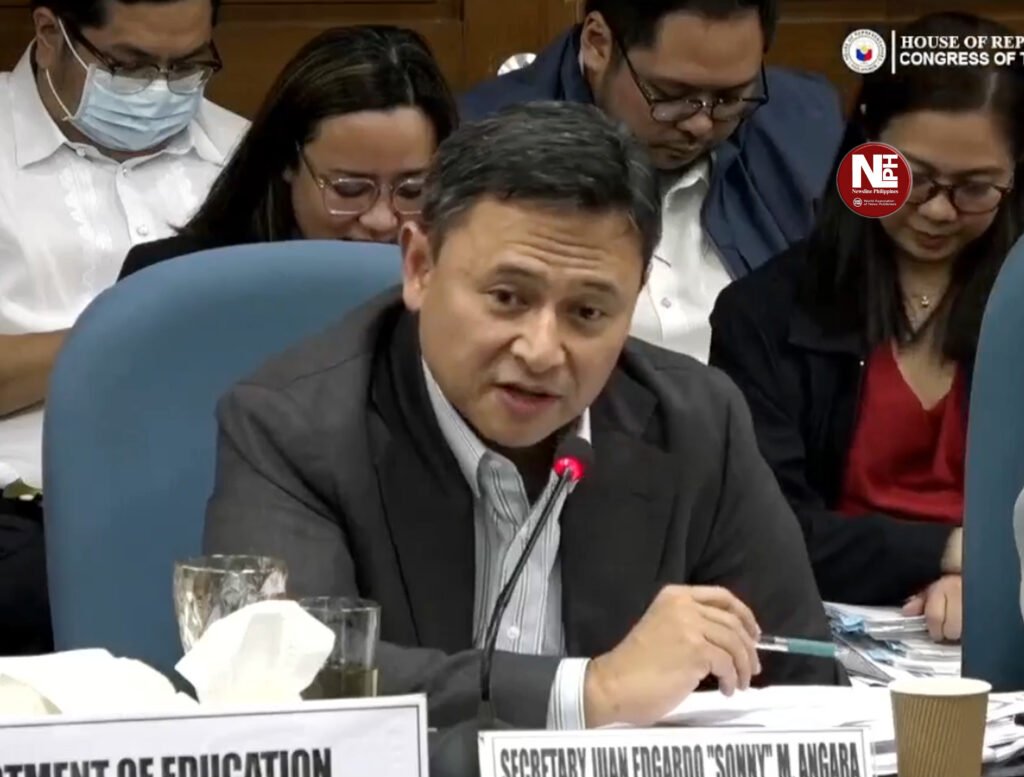
MANILA (September 3) — On Wednesday, September 3, the House Appropriations Committee resumed deliberations on the Department of Education’s proposed P928.52-billion budget for 2026, the department’s largest in history.
DepEd’s proposed spending plan for next year is also one of the largest leaps it has put forward in recent years—at least 18% higher than its current budget for this year (P782 billion), Education Secretary Sonny Angara said in his opening speech before lawmakers on Wednesday, September 3.
“This is the most significant increase in recent years in absolute terms. But in percentage terms, one of the largest in the last decade,” Angara said.
According to its spending plan presented Wednesday, if approved, DepEd intends to use the funds to hire over 65,000 new employees, double teacher allowances to P10,000 per month, distribute over 200,000 laptops to teachers, and deploy 10,000 school counselor associates to schools with students struggling with mental health issues.
Textbooks and educational supplies would cost an additional P11.2 billion, and computerization initiatives that include laptops, smart TVs, e-learning carts, and internet connection for the entire school would cost P16.4 billion.
The proposed budget for DepEd also includes P11.8 billion for its school feeding programs, which the agency claims will help 3 million pupils. Additionally, P28.1 billion is requested for basic education infrastructure, such as classroom construction, repairs, electrification, and library hubs, while P41.11 billion is allocated for government aid and subsidy programs.
House Appropriations Committee Chair Rep. Mikaela Suansing (Nueva Ecija, 1st District) said, “This 928.52 billion peso budget is the highest ever budget for the Department of Education in history.”
“This proposed budget represents a vital opportunity to address persistent challenges and advance long-overdue reforms in the education sector by directing substantial resources to where they matter most,” the legislator stated.
Challenges. The significant budget request coincides with DepEd’s implementation of a number of comprehensive reforms and promised solutions to long-standing issues, including the expansion of its nationwide feeding program, the implementation of the new, decongested Matatag curriculum for Kindergarten through Grade 10, the acceleration of classroom construction, and the improvement of the teacher compensation and promotion system to stop the teacher exodus.
According to Angara, as of August, 54% of DepEd’s current budget for the year had been committed.
He noted that DepEd is the largest bureaucracy in government, with about 3,000 implementing units spread throughout schools, divisions, and regions that manage their own procurement. He also highlighted the department’s implementation issues and the rate of its spending. According to the DepEd secretary, “maintaining efficiency and order across the various implementing units is always a challenge.”
In light of DepEd’s enormous funding request, Suansing reminded the department and the crowded legislative chamber that, according to the Second Congressional Commission on Education’s (EDCOM 2) findings, the nation still faces severe educational challenges, including a learning crisis in which millions of students continue to fall short of basic literacy standards.
According to EDCOM 2’s most recent examination of data from the government’s literacy testing for pupils in grades 1 through 3 in the 2025–2026 school year, at least one in three students was classified as a “low emerging reader,” meaning they could only decipher three out of 10 simple words.
It additionally discovered “most students” were “two to three years behind curriculum expectations in Grade 3.”
In addition, Suansing cited EDCOM 2 findings to state that “classroom construction continues to face delays and inefficiencies, and textbooks and learning resources are still lacking, with only 35 out of the required 94 titles delivered as of January 2025.”
“These challenges underscore the urgency for well-targeted investments and efficient implementation,” Suansing stated.
The head of the House appropriations panel stated, “Let us endeavor to guarantee that these allocations are not only substantial in size, but also effective in impact.”
The Marcos administration’s projected P1.224 trillion budget for basic and higher education includes the DepEd budget. This, according to DepEd yesterday, is equal to 4% of the nation’s GDP, bringing the Philippines into line with UNESCO’s recommended level of education spending for the first time.
After Vice President Sara Duterte resigned after two years in office, Angara took over leadership of DepEd in July 2024.

